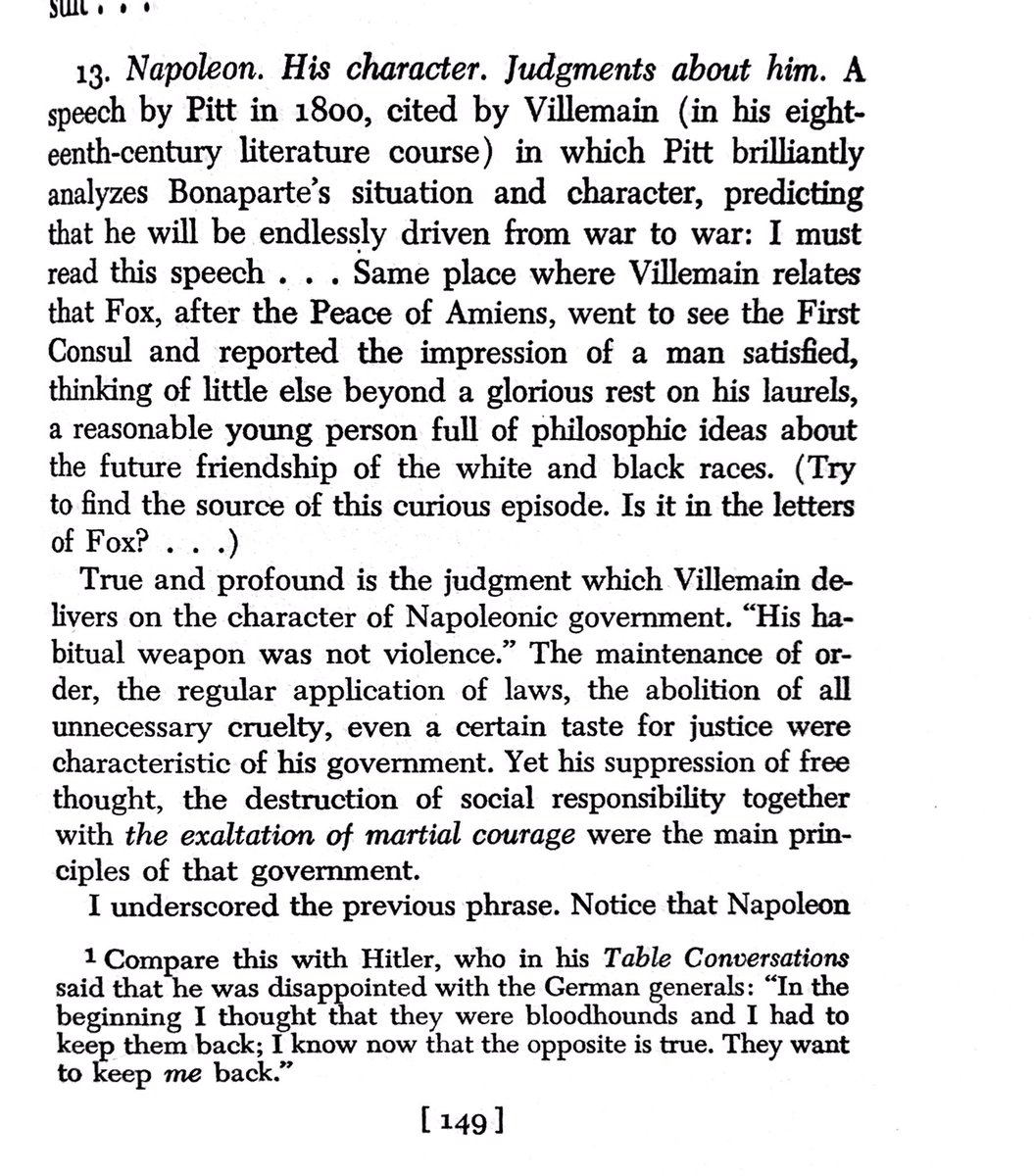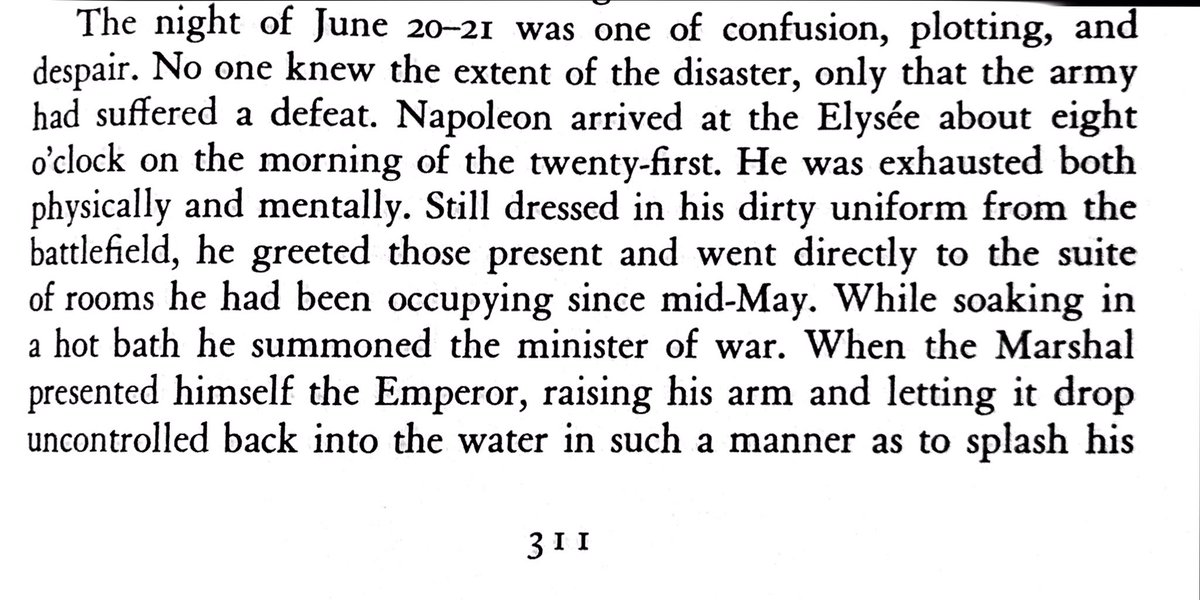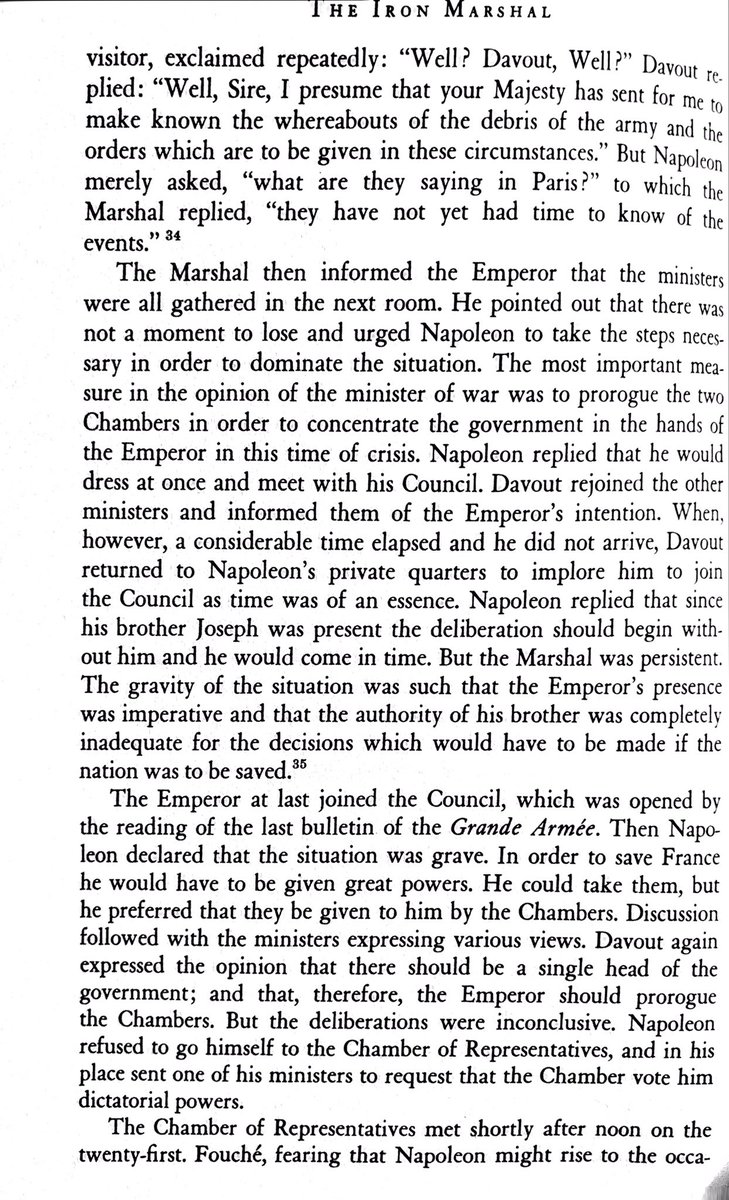
Napoleon said that had it not been for the Revolution, he would have become a scientist. He also stated that would have like to solve the problem that troubled Newton - or as he put it “Newton explained how the planets attract one another but not why they do so”. Laplace, who had
taught young Napoleon and probably wrote the famous characterization of him (see below) thought him intellectually completely capable of this.
https://twitter.com/akoz33/status/1081622787125624833
Indeed, on a famous occasion Napoleon surprised Lagrange & Laplace by telling them of mathematical discoveries he learnt about in Italy, they had not heard about.
https://twitter.com/akoz33/status/1143519349501833216
But to me the closest to the modern incarnation of Napoleon is neither a military figure nor a scientist but a statesman who remains the greatest challenge to the modern ideological consensus. 

The ideology of the Napoleonic regime was above all “meritocracy” (Napoleon, possibly because of his Italian origins, was unable to apply this principle to his own family, for which he paid a big price, of which he was aware). His regime was certainly despotic, but no more so
all the other regimes in Europe, except possibly England, and it was also less cruel than all of them, including England. Indeed, Tocqueville, who can hardly be called a Bonapartist, stated as much 

https://twitter.com/akoz33/status/1081622787125624833


“The abolition of all unnecessary cruelty...”. The one historical figures that Napoleon identified himself with above all others was Julius Caesar and the avoidance of “unnecessary cruelty” was the quality that distinguished him not only from Sulla, whom he did his best not to
imitate, but also from his civil war enemies, such as Pompey, Labienus, and also Cato - who never had any qualms about “excessive cruelty”.
Napoleon actually considered himself a “liberal” - in an older meaning of the word, of course. He expected liberals such as Benjamin
Napoleon actually considered himself a “liberal” - in an older meaning of the word, of course. He expected liberals such as Benjamin
Constant to support him and was upset when they didn’t. Napoleon believed that his own liberalism was the only practical one. It was based on the conviction that men are unequal in their intellectual capacities and that freedom, although essential for the progress of science,
was only suited to those who could make a use of it and dangerous and destructive if given to others. And, what distinguished Napoleon from our today’s “liberals”, was that he was much mote honest than they, because they also believe that freedom is dangerous. Unlike Napoleon,
however, they are committed to the doctrine of absolute “equality”, including that of human abilities. This leads them to the same conclusion as the one that lies at the heart of Marxism-Leninism, that is, that the masses are suffering from “false consciousness” and must be
fed only carefully selected information until they have been “re-educated”. The contemporary, New York Times or The Guardian trading liberal basically believes that all those who disagree with him are either badly or improperly educated (and need to be “re-educated, perhaps in
special camps) or corrupt (hence evil). Napoleon, of course, also believed that the world can be organised on a rational basis. He was indeed, the very quintessence of the Enlightenment. Where the modern liberal claims to “believe in science” but actually treats the heretic
scientist (i.el one who arrives at conclusions at variance with the current liberal dogma) only slightly better than Stalin treated Vavilov, Napoleon genuinely “believed in science”, wherever it took one. Although, of course, for such a pragmatist like Napoleon (one of many
things Lee Kwan Yew had in common with him) the word “belief” is inappropriate - it was not actually a “belief in science” but a belief that science is capable of solving all practical problems. In non-practical problems Napoleon had little interest (as observed by Laplace) but
he did discuss the existence of God on a number of occasions (in particular with Laplace and Lagrange) and was an agnostic rather than an atheist like most of the others (he pointed out that both Newton and Euler were believers...)
During the 100 Days, trying to unite France in
During the 100 Days, trying to unite France in
face of gravest danger, Napoleon turned to “classical liberalism”. Here is how @aroberts_andrew describes this: 

As Roberts says, most historians treat this only as a rouse, but newly discovered liberalism play a significant role in the tense days following Waterloo (events which are ignored in almost all history books). Here is what happened: 



Napoleon’s refusal to seize power without Parliamentary approval gave Fouché and his circle a chance to bring him down. Even then Napoleon still could have used force, but decided against. Here is again John Gallaher 

Of course this is not going to change anyone’s mind and is not intended to. But, as Tocqueville says, Napoleon was a an unique figure, of the kind that (as he put it) appears once in a thousand years, so that it’s not surprising that most people settle for a superficial
judgement. And a superficial judgement of the kind that the New York Times always makes these days will have no impact on Napoleon’s place in history but will only further tarnish whatever is left of the newspaper’s reputation.
• • •
Missing some Tweet in this thread? You can try to
force a refresh


